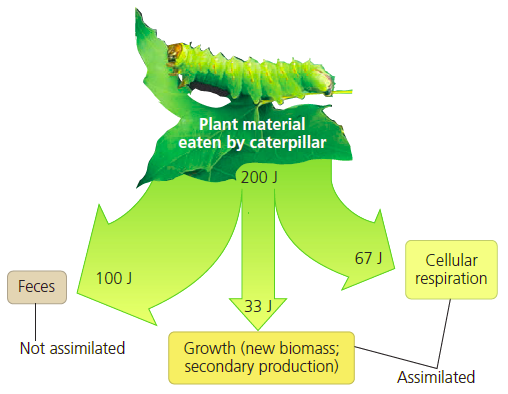Hi
i_love_biology, I know which textbook you're using. I believe it is Campbell's Biology. Anyway, as per the reference, the production efficiency is the percentage of energy stored in food that is used for
growth and
reproduction of the organism eating it, not respiration.
If a caterpillar feeds on 200 J of energy, for example, production efficiency is 33% if 100 J went to waste as feces and only 33 joules went into growth of the caterpillar. Birds and mammals typically have low production efficiencies, in the range of 1–3%, because they use so much energy in maintaining a constant, high body temperature. Fishes, which are mainly ectothermic, have production efficiencies around 10%. Insects and microorganisms are even more efficient, with production efficiencies averaging 40% or more.

Trophic efficiency deals with the flow of energy through trophic levels, whereas production efficiency deals with individual consumers.
What gets transferred from one tropic level to the next is the growth, biomass of the organisms. The organism as you learned already isn't efficient in incorporating all it eats into its growth, so you have to consider that, on top of the energy lost from one level to the next.